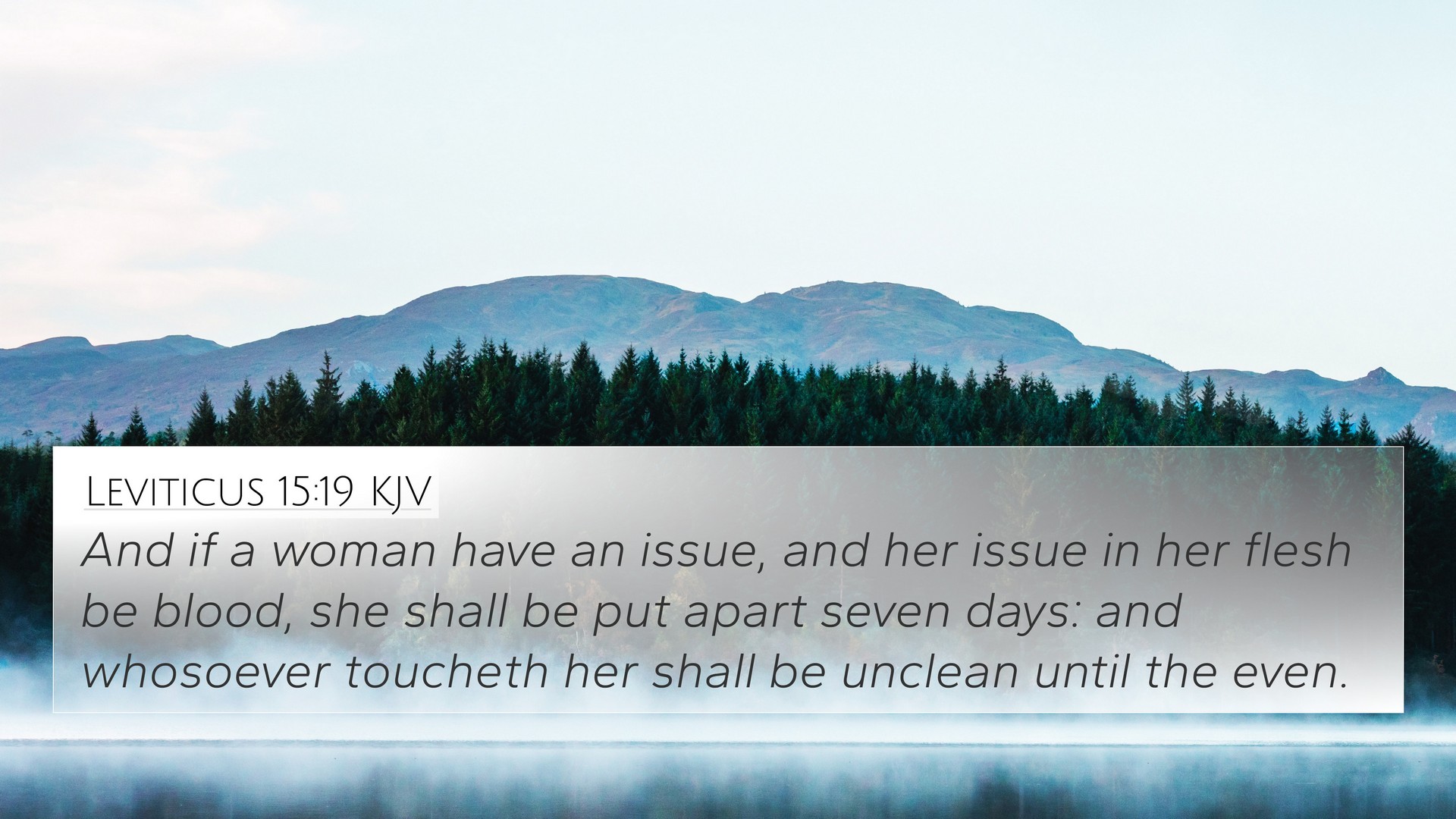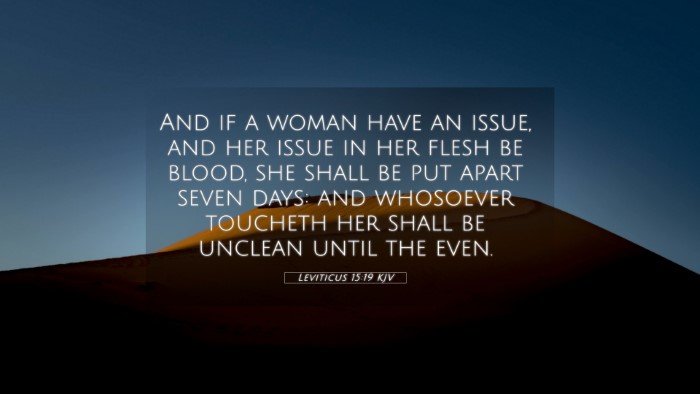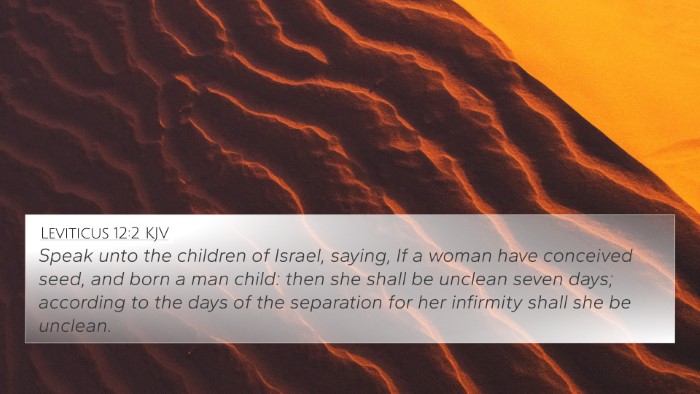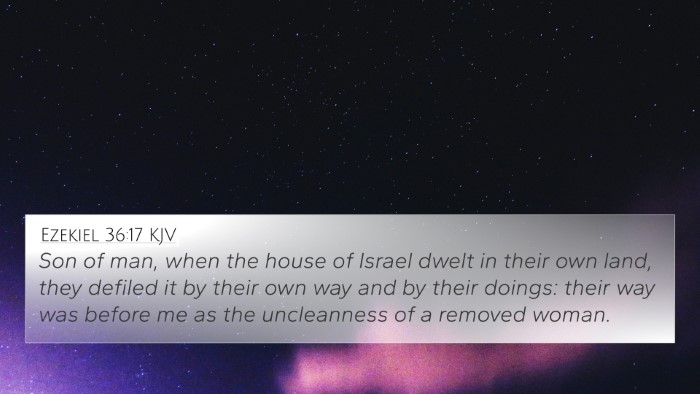Understanding Leviticus 15:19
Leviticus 15:19 states: "If a woman has a discharge, and the discharge from her body is blood, she shall be in her menstrual impurity for seven days; and whoever touches her shall be unclean until the evening."
Overview of Leviticus 15:19
This verse is part of a larger section in Leviticus that deals with laws regarding bodily discharges and their implications for ritual cleanliness. The laws in Leviticus, including this verse, serve both a ceremonial and moral purpose in the life of the Israelites.
Commentary Insights
Matthew Henry's Commentary
Matthew Henry emphasizes the significance of the laws concerning cleanliness and impurity. He points out that the menstrual period was a time of separation not only for the woman but also for those who came into contact with her. This separation underscores the holiness required in the presence of God.
Albert Barnes' Notes
Albert Barnes elaborates on the implications of uncleanness associated with menstruation. He notes that these laws were not intended to diminish the dignity of women but rather to enhance understanding of purity and holiness required in worship and community life. Barnes highlights how these practices reflect a broader theme of moral and physical purity in the life of Israel.
Adam Clarke's Commentary
Adam Clarke discusses the culture of the time and the role of these laws in maintaining social order among the Israelites. He argues that the regulations regarding menstruation were there to protect the community and ensure that worship could be conducted in a state of cleanliness. Clarke's interpretation invites readers to consider the ancient context of these laws and their applicability today.
Cross-References and Biblical Connections
Leviticus 15:19 connects with various other scriptures that elucidate the themes of purity and uncleanness:
- Leviticus 12:2-5 - Discusses the purification of women after childbirth.
- Leviticus 11:24-28 - Addresses the concept of being clean and unclean through contact with bodily discharges.
- Numbers 19:20 - Speaks about the necessity for purification after coming into contact with the unclean.
- 2 Corinthians 6:17 - Encourages separation from unclean things as an aspect of spiritual purity.
- Hebrews 9:13 - Mentions the temporal purification rituals of the Old Testament.
- Matthew 9:20-22 - Relates to the New Testament account of a woman with a discharge and her faith in Jesus for healing.
- Mark 5:25-34 - Similar account highlighting the significance of blood and healing.
Thematic Connections and Interpretations
The themes in Leviticus 15:19 relate to broader biblical teachings around purity, holiness, and the human condition:
- Purity Laws: The concept of purity and its importance in societal and religious contexts extends throughout the Bible.
- Spiritual Significance: The physical laws are often interpreted with spiritual implications regarding sin and atonement.
- Jesus’ Teachings: In the New Testament, Jesus challenges notions of physical purity, focusing instead on the inner condition of a person's heart.
Conclusion
Leviticus 15:19, while rooted in ancient ceremonial laws, carries a deeper significance in the narrative of Scripture. Understanding its meaning through tools such as a Bible concordance or a Bible cross-reference guide can provide insights into how this verse fits into the larger biblical story. Engaging in cross-referencing Bible study can reveal connections between Old and New Testament teachings, enhancing our understanding of God's message about purity and holiness.
In summary, Leviticus 15:19 serves as a profound reminder of God's standards for holiness and the relevance of these ancient laws in understanding biblical themes of cleanliness, separation, and healing.










